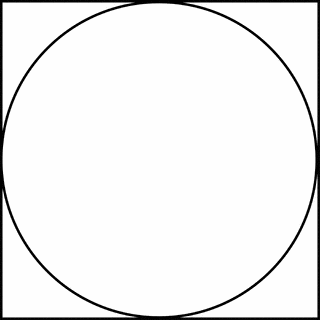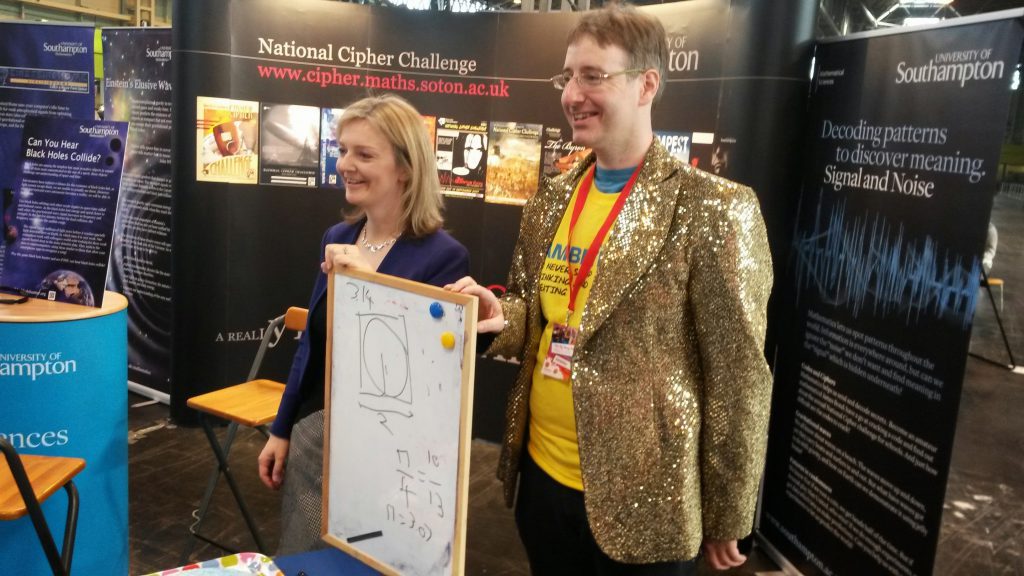Much as Maggie Thatcher was famously a grocer’s daughter, perhaps Liz Truss will be remembered as a mathematician’s daughter. Her father John Truss, who the tabloids report as a lefty maths professor who is vastly disappointed with his daughter’s right-wing politics, is an emeritus professor at Leeds who still lectures and still actively publishes in mathematical logic.
In recent years, Boris Johnson’s backstabbing aide Dominic Cummings had a well publicised understanding of the need to invest in maths , although perhaps his bad eyesight meant that his vision was not followed through, and the promised extra funding did not actually, mostly, appear.
I am excited to see how Truss gets on, as I met the PM-in-waiting in 2014, when Liz Truss was a junior minster, at the Department for Education. My employer at the time, Southampton University, had an outreach programme, and we exhibited at a national science fair trying to encourage students to do mathematics.
If you want to reach the top, do #Statistics .
(I am yet to endorse a candidate) https://t.co/ZlPZsaKcPC
— Ben Parker (@benmparker) July 13, 2022

A circle within a square. We know the ration of the areas of the square to the circle is pi/4, so can use this to calculate pi by experiment.
We played a game with the now-PM to think how we might calculate π on a desert island (this is the mathematical constant 3.141592 that goes on for ever which tells you the ratio between the diameter of any circle and it’s circumference.) Essentially we take a square and a circle of the same width/radius. We know the area of the square, and the area of the circle, and can show easily that the ratio of the area of circle to the square is π/4. We throw a lot of darts at the circle-in-the-square and we count the number of darts that land within the circle, c, and the number within the square, s. If we throw darts at random, we know that c/s should be approximately π/4. The remarkable mathematical result, known as the Monte Carlo method, is that if we do this for long enough, we will eventually get the true value of π to any level of precision (this youtube video gives the flavour). This mimics the way computers calculate things, and this simulation approach, and knowing how long a simulation might take to be accurate is really important. This technique is used extensively in for example mathematical finance- if I buy this share, how many days out of a thousand will I make a profit, and how many times the bank will go bust before I do.

The PM was lucky. As you see in the photo, she got c=10 and s=13, meaning that π works out at 3.07. She was really pleased with herself, and reminded me in her tweet of how to remember the digits of π – How I wish I could calculate Pi! (How has 3 letters, I has 1, wish has 4, etc- a useful mnemomic. I only met Truss for a few minutes, but she seemed genuinely enthusiastic about mathematics, and in control of her educational brief.
What of the father? Prof Truss works in logic and discrete maths, which was a relatively abstract field of mathematics, until the invention of computing made it a phenomenally useful tool in computer science. It went from something obscure and philosophical, to something less obscure, but fundamental to the computational revolution the last 50 years have seen. His book, Discrete Mathematics for Computer Scientists, is available at amazon, and well thought of.
Thinking of the future, Liz Truss is a logical creature. Without being too political (I really have no strong politics), she does not have the bombastic (wo)man of the people image like fellow Oxford Graduate Boris Johnson. Her experience of PPE (Politics, Philosophy, and Economics), and training as an accountant gives me hope that we will start having some logical decisions, based in economics, perhaps echoing the evidently organised mind of her father, in government. Truss was always a keen supporter of mathematics, writing an article in 2008:
Yet the UK, home of Turing, father of modern information technology, and numerous recent prize winners such as Atiyah and Wiles, is failing to generate sufficient quality mathematicians. Financial services are being forced to recruit a high proportion of overseas graduates – as many as seven out of eight of all such posts. UK workplaces are finding themselves short of people with basic mathematics skills. Universities are being asked to select from a significantly reduced pool of applicants, a large number of whom are independently educated or from overseas.
Winning the battle of the maths economy will be critical to the UK’s future success. … Radical measures have to be taken to move mathematics from “geek to chic”. Rigour must be central to this approach. The Government should step in and reverse the current inexorable drift towards modularising GCSE mathematics. A new Alexander is needed to cut the Gordian knot of state control and open up individuals’ and institutions’ ability to improve their own capability in the subject.
The article interestingly compares GCSE (or equivalent) questions over the previous 60 years, and shows really how they have lost rigour at the expense of accessibility. The recommendations included the need to stop modular GCSEs and A Levels (now accomplished) and make GCSEs and A-levels more rigorous( still more to do, in my opinion). Michael Gove was also closely involved in educational reforms, and for a while was Liz Truss’s boss as Secretary of state at the Education department
At the greater level, UK research funding now prioritises research that is immediately useful, and “purer” fields like logic and other pure mathematics are sometimes not favoured here. How do you convince someone that your research is useful if it might take 100 years to transform into a product? For example, the logician who published as the Rev. Charles Dodgson, who most people will know as Lewis Carroll, wrote about how to improve long division whilst minimising the number of steps, a phenomenally useful abstract technique which only really became useful 50 years later when computers were able to use this theory. Interestingly, Dodgson worked in the same general area as Liz Truss’s dad, and helped to popularise the mathematical study of logic and find fun find fun ways to teach this to children.
My hope is that our new prime minister’s experience with her father will make her realise the value of all mathematics. Maths is important- not just applied maths, and statistics, and related fields such as computing and machine learning- but the whole of mathematics can be of enormous value. Perhaps the mathematician’s daughter will now (in her own report’s words) move mathematics from geek to chic.
Like all articles on this blog, this is my personal opinion, and does not represent the views of my current or employers or associates